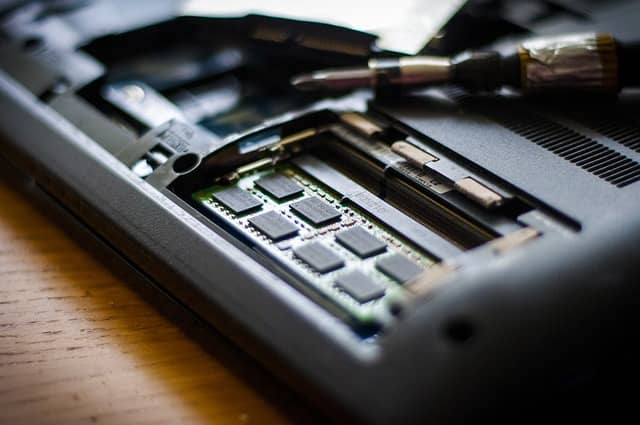A considerable lot of us accept we are bosses of our own fate, however new exploration is uncovering the extent to which our conduct is impacted by our genes. It's currently conceivable to unravel our individual genetic code, the succession of 3.2 billion DNA "letters" extraordinary to every one of us, that shapes an outline for our cerebrums and bodies.
This succession uncovers the amount of our conduct has a weighty biological predisposition, which means we may be slanted towards fostering a specific trait or trademark. The examination has shown genes might incline our tallness, eye tone, or weight, yet additionally our weakness to mental chronic sickness, longevity, intelligence, and impulsivity. Such attributes are, to shifting degrees, composed into our genes — once in a while a great many genes working in the show.
A large portion of these genes educates how our cerebrum hardware is set down in the belly, and how it capacities. We would now be able to see a child's mind as it is constructed, even 20 weeks before birth. Hardware changes exist in their minds that firmly connect with genes that incline for mental imbalance range problem and consideration shortfall hyperactivity issue (ADHD). They even incline for conditions that probably won't arise for quite a long time: bipolar turmoil, significant burdensome problem, and schizophrenia.
Also read: Pharmacogenomics | Genetic Testing For variations And Cancer Medicines
Progressively we are confronted with the possibility that predispositions to more intricate practices are also wired into our minds. These incorporate which religion we pick, how we structure our political belief systems, and even how we make our fellowship gatherings.
There are likewise alternate ways our biographies can be gone down through generations, other than being recorded in our DNA.
"Epigenetics" is a generally new space of science that can uncover how interwoven nature and sustain can be. It looks not at changes to genes themselves, but rather at the "labels" that are put on genes from life experience, which adjust how our genes are communicated.
One 2014 investigation took a gander at epigenetic changes in mice. Mice love the sweet smell of cherries, so when a drift arrives at their nose, a delight zone in the cerebrum illuminates, spurring them to run around and chase out the treat. The specialists chose to combine this smell with a gentle electric shock, and the mice immediately figured out how to freeze in expectation.
The examination tracked down this new memory that was sent across the generations. The mice's grandkids were unfortunate of cherries, notwithstanding not having encountered the electric shocks themselves. The granddad's sperm DNA changed its shape, leaving a plan of the experience laced in the genes.
This is progressing examination and novel science, so questions stay about how these systems may apply to humans. Be that as it may, starter results show epigenetic changes can impact relatives of incredibly awful mishaps.
One examination showed the children of US Civil War detainees had an 11% higher passing rate by their mid-40s. Another little examination showed overcomers of the Holocaust, and their youngsters conveyed epigenetic changes in a gene that was connected to their degrees of cortisol, a chemical associated with the pressure reaction. It's a convoluted picture, however, the outcomes propose relatives have a higher net cortisol level and are subsequently more powerless to tension issues.
Obviously, it's not just the situation that our lives are settled forever by the mind we're brought into the world with, the DNA given to us by our folks, and the recollections passed down from our grandparents.
There is, fortunately, still an extension for change. As we learn, new associations structure between nerve cells. As the new expertise is drilled, or the learning remembered, the associations reinforce and the learning is combined into a memory. On the off chance that the memory is more than once visited, it will end up being the default course for electrical signs in the mind, which means learned conduct becomes a propensity.
Take riding a bicycle, for instance. We don't have a clue how to ride one when we are conceived, yet through experimentation, and a couple of little crashes en route, we can figure out how to do it.
Comparable standards make the reason for both discernment and route. We make and reinforce neural associations as we move around our current circumstances and invoke our impression of the space that encompasses us.
However, because of ongoing logical advancements in regions like biotechnology, data innovation, and nanotechnology, humanity might be on the cusp of an upgrade upset. In the following few decades, individuals might have the alternative to change themselves and their youngsters in manners that, up to now, have existed generally in the personalities of sci-fi journalists and makers of comic book superheroes.
The two promoters for and adversaries of human improvement turn various potential situations. Some discussion about what may be designated "humanity in addition to" – individuals who are still conspicuously human, however a lot more brilliant, more grounded, and healthier. Others talk about "post-humanity," and foresee that sensational advances in genetic designing and machine innovation may eventually permit individuals to become cognizant machines – not conspicuously human, basically outwardly.
This improvement insurgency, if and when it comes, likely could be provoked by progressing endeavors to help individuals with handicaps and mend the wiped out. Without a doubt, science is as of now gaining quick headway in new helpful and restorative innovations that could, in principle, have suggestions for a human upgrade.
In any case, there's a trick: once in a while, our previous learnings dazzle us to future certainties. Watch the video underneath — we're totally one-sided towards seeing appearances in our current circumstances. This inclination makes us disregard the shadow signals disclosing to us it is the back finish of a veil. All things being equal, we depend on attempted and tried courses inside our minds, generating the picture of another face.
This figment represents how troublesome it very well may be to adjust our perspectives. Our character and assumptions depend on past encounters. It can take an excess of intellectual energy to separate the systems to us.
As I investigate in my most recent book distributed last year, The Science of Fate, this examination addresses perhaps the greatest secret: our individual limit with regards to the decision.
As far as I might be concerned, there's a lovely thing about survey ourselves as exquisite hardware. Contribution from the world is handled in our interesting cerebrums to deliver the yield that is our conduct.
In any case, a considerable lot of us may not wish to surrender being free specialists. Biological determinism, the possibility that human conduct is completely inborn, appropriately makes individuals apprehensive. It's despicable to feel that shocking demonstrations in our set of experiences were executed by individuals who were frail to stop them since that raises the apparition that they may happen once more.
Maybe all things being equal, we could consider ourselves not being limited by our genes. Recognizing the science that impacts our distinction may then engage us to more readily pool our qualities and bridle our aggregate intellectual ability to shape the world to improve things.








0 Comments
Thanks for your feedback.